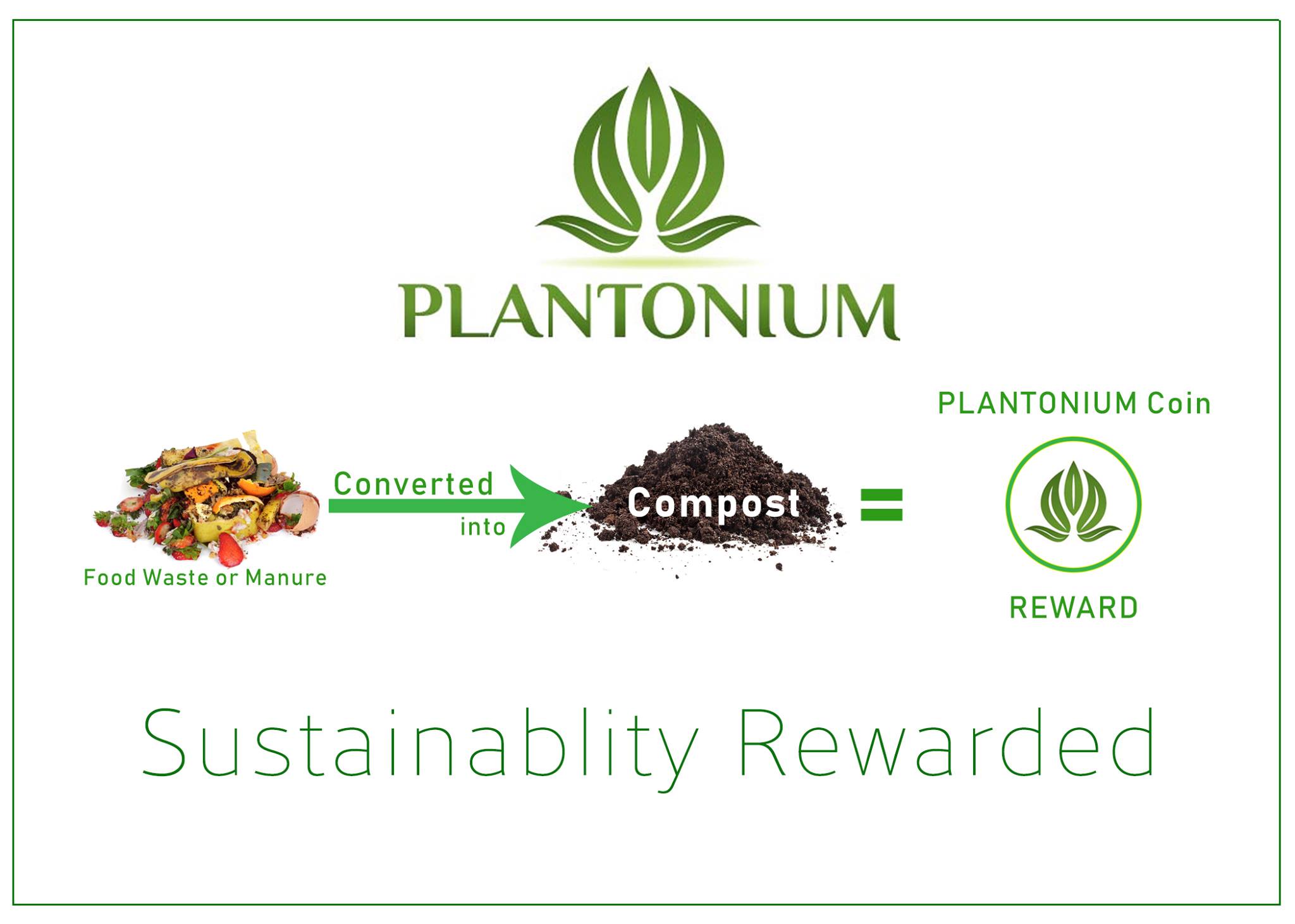Plantonium Token (PLANT) AIRDROP!! 5000 PLANT per post
Post your WAVES WALLET in the comment section and upvote this blog post to receive 5000 PLANT tokens!! PLANT token is a project lead by EcoloCap Solutions (ECOS: OTCPINK) a publicly traded company https://www.prnewswire.com/news-releases/ecolocap-creates-new-product-brand-and-crypto-asset-plant-token-300601243.html.
PLANT token is going to revolutionize the organics recycling industry by rewarding companies and individuals for composting organic waste
#whitepaper sneak peak :)
Introduction
Plantonium Token (PLANT) is EcoloCap Solutions (OTCPINK: ECOS) crypto-asset, which was created to incentivize and promote Organics Recycling throughout the United States. EcoloCap Solutions will reward PLANT token to individuals and companies that recycle organic waste, a simple but powerful business model. Plantonium Token was launched on the WAVES Blockchain Platform and is trading on their Decentralized Exchange (DEX) under the ticker PLANT.
The Problem
Organic materials—including food waste, manure, bio-solids, yard trimmings, soiled paper, and wood waste—are often forgotten when considering the three “Rs” of reducing, reusing, and recycling. The problem is that 60% of the solid waste stream in the United States is made up of biodegradable material. When organic waste is not managed properly it can cause serious health and environmental risks.
Food Waste
Wasted food is a growing problem in our modern society and an untapped opportunity. In 2014 alone, more than 38 million tons of food waste was generated, with only 5.1 percent diverted from landfills and incinerators for composting. When food waste is dumped in a landfill, it undergoes anaerobic decomposition and generates methane a potent greenhouse gas.
Food waste is made up of valuable nutrients that should be returned to the soil to make farm land more fertile. The whole idea around organics recycling is to divert organic material from the landfill in order to create a fertilizer and close the loop in a circular economy.
Conserving Resources
Reducing wasted food does great things for the environment:
Reduce Methane from Landfills - When food goes to the landfill, it’s similar to tying food in a plastic bag. The nutrients in the food never return to the soil. The wasted food rots and produces methane gas.
Save Resources – Wasted food wastes the water, gasoline, energy, labor, pesticides, land, and fertilizers used to make the food. When we throw food in the trash, we’re throwing away much more than food.
Return Nutrients to the Soil – If you can’t prevent, reduce or donate wasted food, you can compost. By sending food scraps to a composting facility instead of to a landfill or composting at home, you’re helping make healthy soils. Adding compost to gardens, highway construction sites, and poor soils makes great things happen. Properly composted organics (wasted food and yard waste) improve soil health and structure, improve water retention, support more native plants, and reduce the need for fertilizers and pesticides.
As the population grows in the United States of America so does the problem of food waste. This issue is spiraling out of control and needs immediate action from everyone.
Why has the problem not been addressed?
Organics Recycling has not gained traction in the United States for one main reason, the landfill. Our current waste system does not promote organics recycling, due to its current landfill based business model. The largest waste management companies own and operate landfills, which receives compensation per ton of waste that is dumped into the landfill. The heaviest and largest portion of our waste stream comes from the food waste we all throw away, due to the high moisture content it holds. If all organic material was diverted from the landfill, then waste companies would not be as profitable.
Government action is currently the only driving force available for organics recycling programs. Some states like New York and California have implemented zero waste strategies, but are not capable of funding such operations. There needs to be another driving force, which is were Plantonium Token and EcoloCap Solutions comes into the picture.
3PGYMTFwBFPQtpmWKUTK5QNEGsS4sjcyipn
3PLXFv3bVfhg5p2dtp1Nbv9mHXrSg8nSWNP
Congratulations @cryptodill! You have completed some achievement on Steemit and have been rewarded with new badge(s) :
Click on any badge to view your own Board of Honor on SteemitBoard.
To support your work, I also upvoted your post!
For more information about SteemitBoard, click here
If you no longer want to receive notifications, reply to this comment with the word
STOP3PAZJqPXmJk2HhZdfGqVfo3G1HL4MZyeWuH
3PPYYLyetQum7geHdLXfVE8c49LhxP13EXB
3P8KnhtLnQpYj7JPrP8xRMriRvwovA3esoc
3PMxZprZmtnq1cd2RSdsaA2smxeB5bwwGAm
3PF7zdDjXYUxCYoD9LNt7kuRoaD4dSJzEgb
3PFefwEF1vByhAFDgwj23PKtMjGuH2uYnoa
3P71kknYu2rXaGJYFJ88ZVmFvLw5fD7Bsae
3P8T5rqmHP6AL82BZeCEFdYqzPjruGHCnbZ
3PDLBegeGEfG5ip4ZACGvSAEBC5YPJyYtB5
3P26f58nmDr8Wcyi2mr4Ygm2vK3f3iFGufH
3P47ok7fd9mP4qRtDxjMj222xoZ96HPTnox